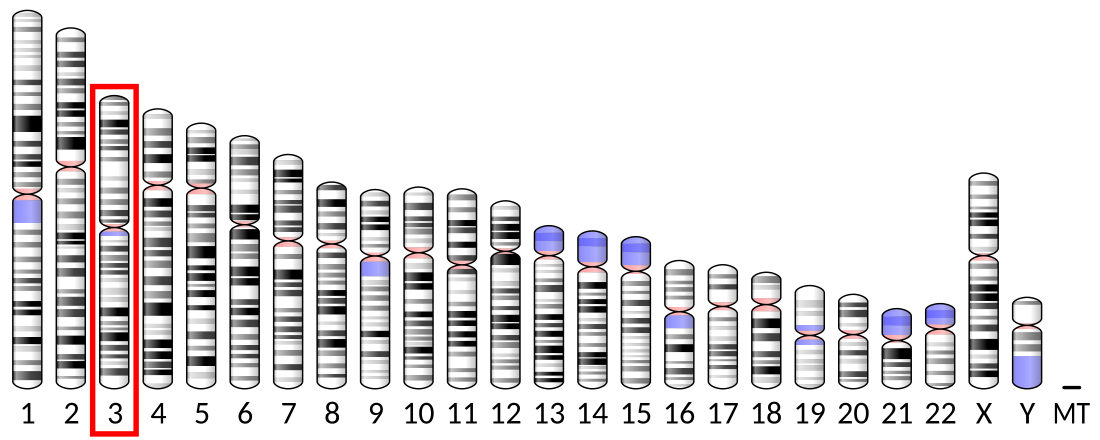MST1R
Protein-coding gene in the species Homo sapiens From Wikipedia, the free encyclopedia
Macrophage-stimulating protein receptor is a protein that in humans is encoded by the MST1R gene.[5][6] MST1R is also known as RON (Recepteur d'Origine Nantais) kinase, named after the French city in which it was discovered. It is related to the c-MET receptor tyrosine kinase.[5][7]
Interactions
References
Further reading
Wikiwand - on
Seamless Wikipedia browsing. On steroids.





